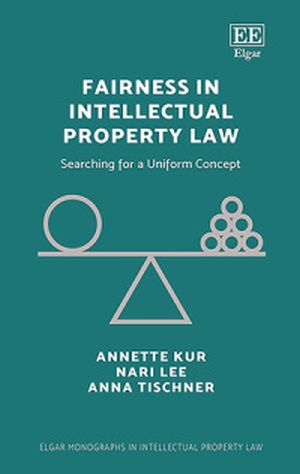
This book contends that the concept of fairness should be embraced and developed as a middle ground between strictly utilitarian and fundamental rights-based approaches to intellectual property (IP) law.
Annette Kur, Nari Lee and Anna Tischner provide elegant arguments as to why this should be the case, and offer insights into how fairness as a legal notion can fulfil the role of mediator between the property aspects of IP law, market regulation and general welfare. They explore the terms and concepts of fairness in EU legislation, analyse the overarching network of goals and values set by EU law, and address the predominant theories that inform the notion of fairness and the use of empirical methods as a tool for its concretization. Ultimately, the book presents a conceptual framework of fairness to form a toolkit for legislative and judicial decision making and applies this to emerging challenges in IP law, such as AI regulation.
Showcasing multifaceted perspectives, relevant doctrines and positive norms, this book is a valuable resource for scholars and researchers of European law and intellectual property law. It is also beneficial to judges, IP practitioners, policymakers, and IP offices.